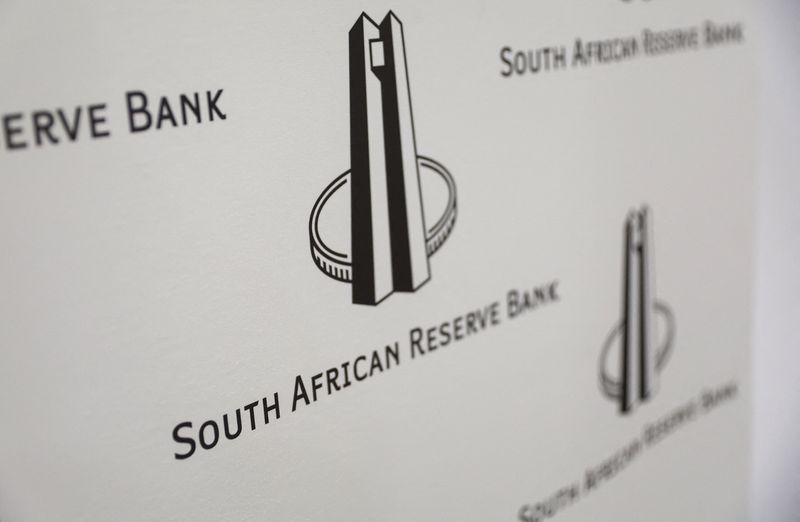By Vuyani Ndaba
JOHANNESBURG (Reuters) - The South African Reserve Bank is likely to leave its repo rate unchanged this year before kicking off a cutting cycle in early 2024, chopping 25 basis points in every quarter as inflation slows closer to its comfort level, a Reuters poll found.
If this happens, South Africa's Reserve Bank will join a list of emerging market central banks that have either already begun cutting rates or will embark on a loosening path after tightening to brake inflation long before many developed nations.
In a survey conducted in the past week, 17 of 20 economists predicted the repo rate would be kept steady next month at 8.25%, with 16 of them seeing no change again in November. Two economists predicted a September hike of 25 basis points while the other one saw a 50 basis points lift.
However, the poll suggests the SARB will cut rates by 25 basis points as early as January or March and again in every subsequent quarter next year.
Investec chief economist Annabel Bishop said the United States is expected to cut interest rates next year and the SARB is expected to do the same, potentially from Q1 24 for South Africa's repo rate.
Bishop added that easing inflation, and potentially flat to lower interest rates next year would be a positive for households. There are risks, however, to the largest component of the CPI, food prices, due to the combination of climate change and El Nino conditions.
A sister poll suggested the U.S. Federal Reserve is likely done raising interest rates and a slight majority of economists surveyed now expect the central bank to wait at least through end-March before cutting them.
In South Africa, inflation is expected to slow further in the coming months and average 4.9% next year from 5.9% this year and then fall to 4.6% in 2025. The South African Reserve Bank wants inflation between 3% and 6%.
Economic growth is expected to be 0.3% this year and 1.2% in 2024.
"In terms of the South African growth drivers in 2024, lower interest rates and inflation will help, but we think the major driver of improved growth will be faster private sector fixed investment, fuelled by green-energy-related capex," said Hugo Pienaar, chief economist at the Bureau for Economic Research.
Growth has been hobbled by state power utility Eskom's inability to transmit electricity during a slow ramp up of alternative power sources such as solar and wind energy.

Amid daily power cuts, Eskom is saddled with a massive debt burden forcing it to tread a thin line between allocating capital for regular maintenance and capital expenditure on its fleet of ageing, coal-fired power plants.
(For other stories from the Reuters global economic poll, click here)